Welcome to another issue of The Newport Cornucopia where we dig through the newspapers archives for interesting news articles and adverts. All articles are posted verbatim and most headlines are original (headlines in quotes are my own).

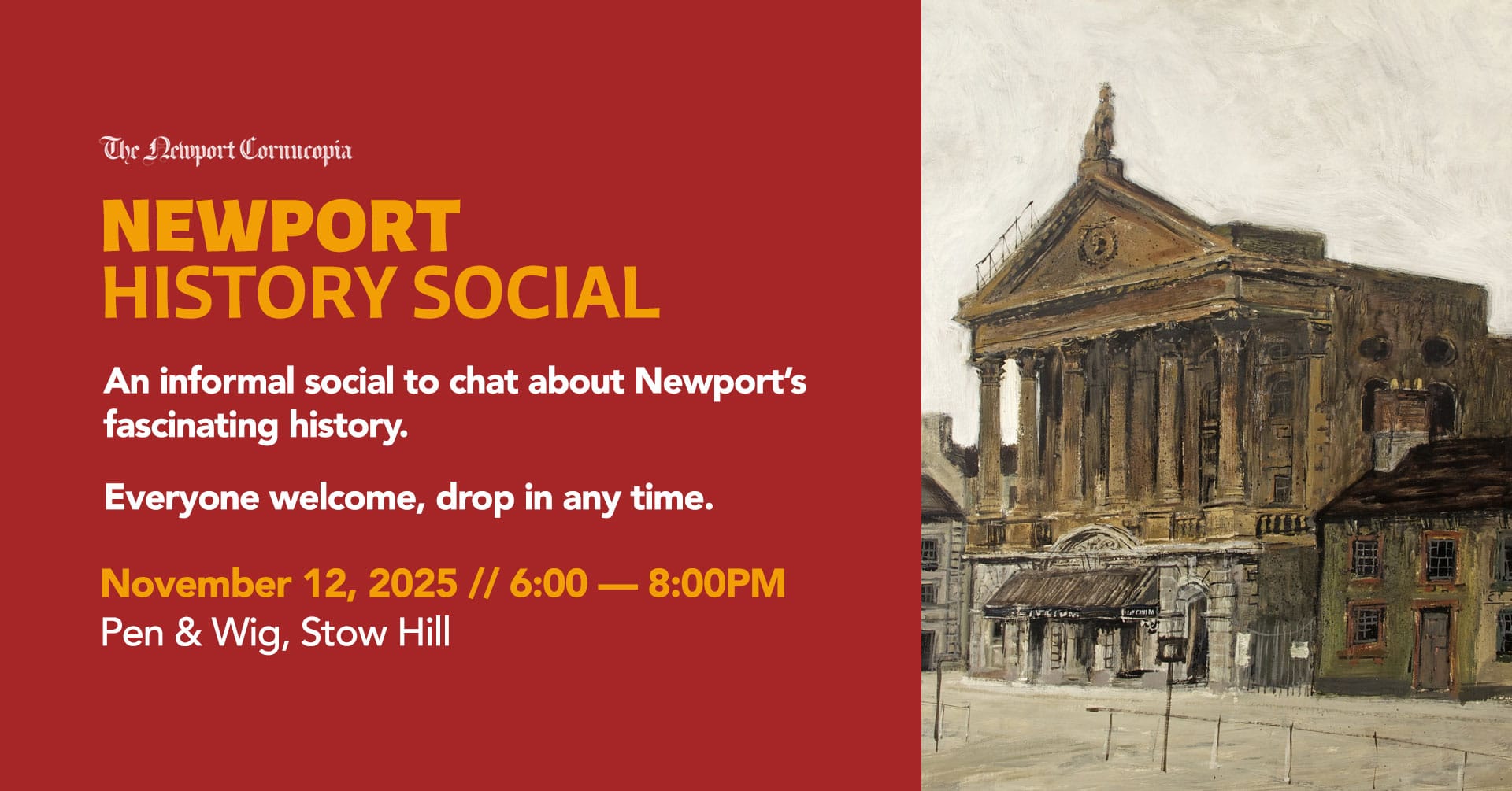

Royal Albert Restaurant
On Wednesday, the 20th November, Mr C. Parsons, of the firm of Parsons and Robjent, will wield the hammer, and if a glib tongue and eloquence are persuasive powers, will knock down, in the event of the reserve price being reached, the Royal Albert Restaurant, for so many years occupied in Commercial-street by Messrs James Ewins and Son.
The bare announcement of the sale brings to memory a flood of recollections. We well remember the premises dilapidated and cobwebbed as they were, when in the occupation of Mr Wintle, wholesale wine and spirit merchant. At that time the entire accommodation at disposal was considerably less than the luncheon bar at present in use. Mr Ewins, who had successfully carried on the business of a confectioner at 51, Commercial Street, had previously added a wholesale wine trade to his establishment. Taking advantage of Mr Wintle's premises being in the market, and flushed by the past success, he became the purchaser of the premises.

Convinced of the idea that a large business, consisting of edibles and drinkables, might be carried on with profit to himself and advantage to his customers, he immediately set himself the task of razing the old premises to the ground, and providing accommodation of which up to that period the town was altogether lacking. Members of the licensing trade described Mr Ewins as dreamer, his views as Eutopian. Nothing daunted this, he boldly proceeded with his original scheme, actuated by two simple ideas. One was to supply the best viands and edibles obtainable, but to charge them full prices. The other was to conduct his business in such a manner that all sections of society need not hesitate a single moment to bestow upon him their flowed patronage.
His success was marvellous. The tide in a torrent, and in a very short space time the accommodation which he bad provided, extensive though it was, was altogether inadequate to the requirements. The restaurant was not opened until the month of September, 1868, and then only about 20 feet of the sloping garden, which ran right through to Stow hill, had been built upon. An additional 40 feet was taken in, but as time sped on this did not meet the requirements of the establishment. The proprietors then determined upon a bold stroke.
They carried the large dining hall an additional 30 feet, and decided to erect the Albert Hall in the immediate rear.
This building, with the grand organ which it possessed entailed a cost of about £14,000. It was only in respect to this one point that Mr Ewins proved be in advance of the times. The hall and the purposes it was intended to serve proved unremunerative, and eventually it was disposed of to a public company. At the same time the restaurant progressed both in size and popularity, and in the year 1872 it was in its present dimensions opened with great eclat, a grand banquet being held.
The late Alderman Samuel Homfray presided, and a large and exceedingly representative gathering of local notabilities were present. The STAR OF GWENT was duly represented upon occasion, and even at this long lapse of time the immense cheers which greeted the portly form and genial countenance of Alderman Homfray still seem to ring in our ears.
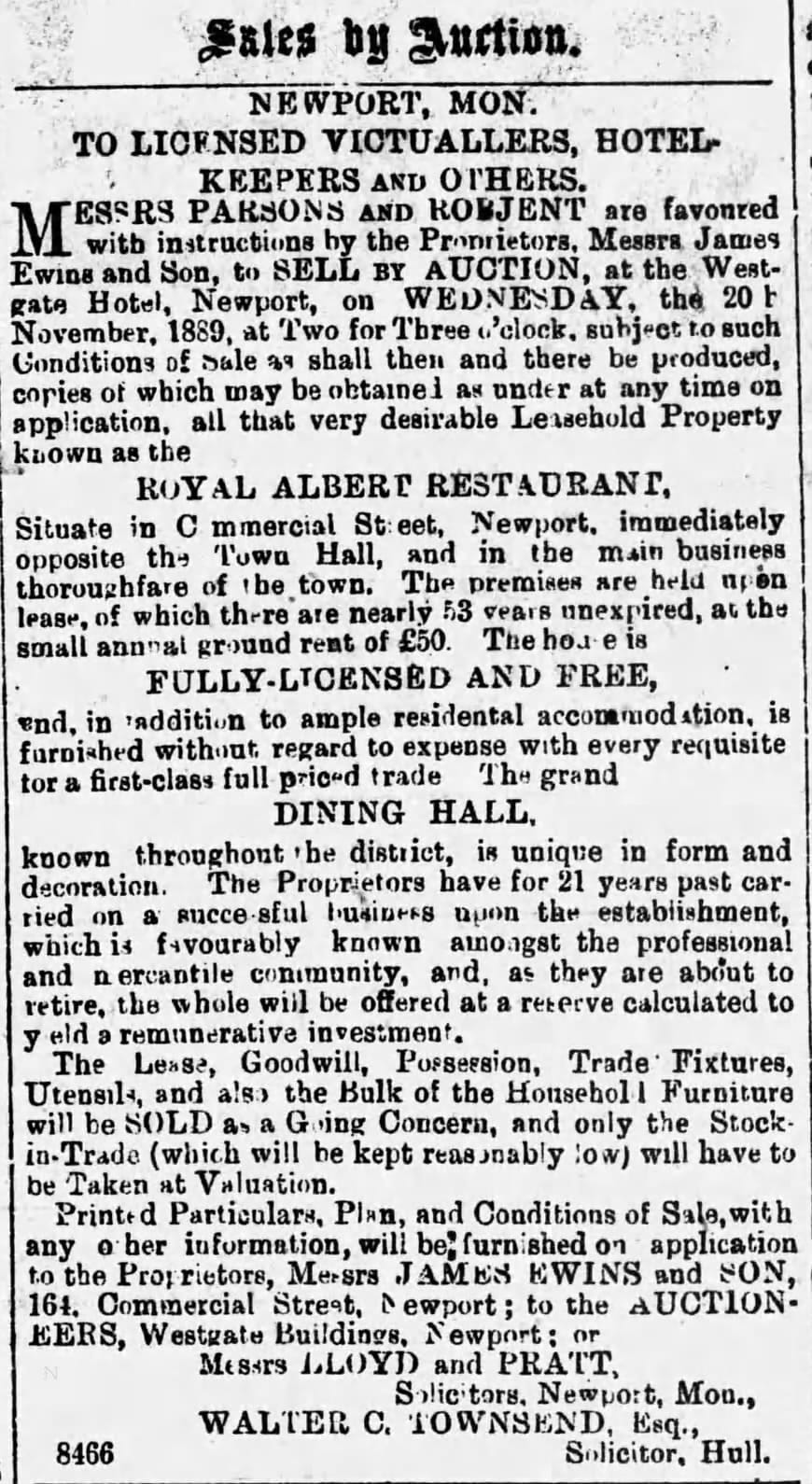
Scarcely a month has since passed but what increasing business has necessitated alterations and increased accommodation. At the present moment the restaurant is undoubtedly the finest out of London. Were it only situated in the Metropolis, firms like Messrs Spiers and Pond would be prepared to give a miniature mint of money to become its purchaser.
The great dining hall is no less than 65 feet in length by 16ft. 6in. in width. It is furnished in the most luxurious manner, and many of the pictures which embellish the walls are replicas of the greatest masters England ever possessed. It is computed that on an average from 200 to 300 persons daily partake of meals in this hall alone.
A large number of these are ladies, to wait upon whom several female attendants are specially engaged. To provide for such a hall great attention has had to be paid to the kitchen, and a well-known caterer from the West of England, who recently inspected the premises, probably with a view to purchase, stated that with the steam boiler and the numerous cooking ranges, the kitchen might with ease prepare food for at least 1000 guests per day. The kitchen itself is 47 feet long by 17 feet in width, and one of the ranges occupies 13 feet, whilst in the scullery there is a 10 feet, range. The premises are also admirably provided with cellars, smoking room, small dining room, wine racks, lavatories, serving rooms, and spare rooms, In fact nothing whatever is wanting to do even a far larger trade than that which the present proprietors have done for so many years. As an instance of the patronage bestowed upon this restaurant it may be mentioned that the staff daily employed exceeds twenty persons, male and female.
The entire premises are in excellent condition, and only a few years ago the lease, which has an unexpired term of 53 years, was renewed on terms which single moment. The establishment is patronised with ground landlords would not at present consider fore almost as much freedom by total abstainers as by those who indulge in alcoholic drinks. The wants of each receive the most careful attention, and owing to the courtesy and attention invariably met with, these two conflicting elements are for the time being brought into complete unison. This, then, is the property which Messrs Parsons and Robjent will speedily submit to the hammer. sale, as previously mentioned, will take place at the Westgate Hotel, on Wednesday, the 20th November, the hour being two for three.
— South Wales Daily Times and Star of Gwent, 13th November, 1889 (Subscription Required)

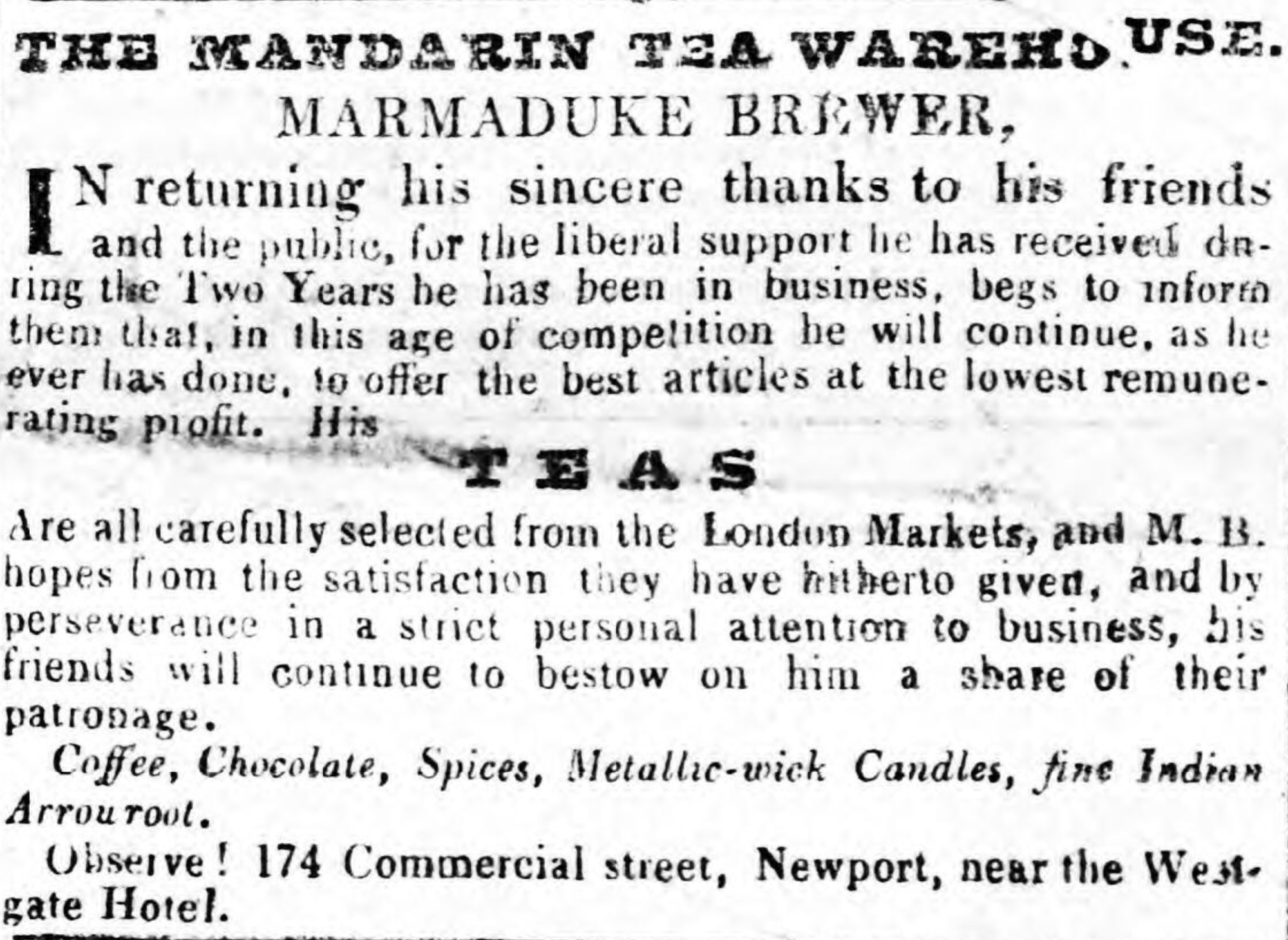

'Newport Water Famine'
A report by the Waterworks Committee discussed how the town was at risk of a 'water famine' based on the levels in its reservoirs. In the 12 months leading up to the report the levels were 33,000,000 gallons done with the Pant-yr-Eos reservoir at 30ft instead of 91ft and the Ynys-yr-bro reservoir being dry.
A notice had been prepared urging the public to use water wisely and threatening legal action to those persons found wasting water. They had decided to restrict the supply, cutting off water between 8pm and 5am.
The following letters were included with the article.
DEAR SIR, — I understand that according to the reservoir people we had only in store eleven days' supply yesterday. Yet on Saturday and yesterday morning some of our hotels in the town actually washed down the fronts of the their houses and the pavements. One hotel had two hose pipes playing for over half an hour. Surely their licenses do not allow them to wantonly waste the water in such an extravagant manner. I think it is quite time our Waterworks Committee absolutely prohibited the use of water for this purpose.
— Yours faithfully, ECONOMY WITH WATER
Newport, November 4th, 1901
DEAR SIR, — There are all sorts of rumours throughout the town with regard to the water famine at Newport, and certinaly the time has come when something drastic should be done by the Waterworks Committee. Considering the short amount of water in the reservoir, why don't the Corporation stop the baths, cut off the supply for several hours during the day, and, if necessary for the health of the town, stop the supply of water to the works?
There is a persistent rumour that the authorities intend turning the canal with all its horrors into the reservoir, but this is beyond belief.
Yet to my personal knowledge one Newport gentleman has sent his family away, whilst others are considering a similar step, owing to the fear of an outbreak of fever. The barometer is high, and the likelihood of rain very remote, and something must be done.
— Your faithfully, PATERFAMILIAS
Newport, November 4th, 1901
— South Wales Argus, 4th November, 1901 (Subscription Required)

Porpoises in Newport
On Monday morning a couple of porpoises were seen gambolling in the river, between Newport bridge and the Great Western Railway bridge, and some hundreds of persons assembled to watch their movements. One of the porpoises soon disappeared, but the other was seen in the vicinity up to three o'clock in the afternoon, when it was shot at from the bridge, and either wounded severely or killed, for it immediately sank. It is said that the appearance of porpoises so near land indicates the approach of severe storms.
— Monmouthshire Merlin, 19th September, 1879



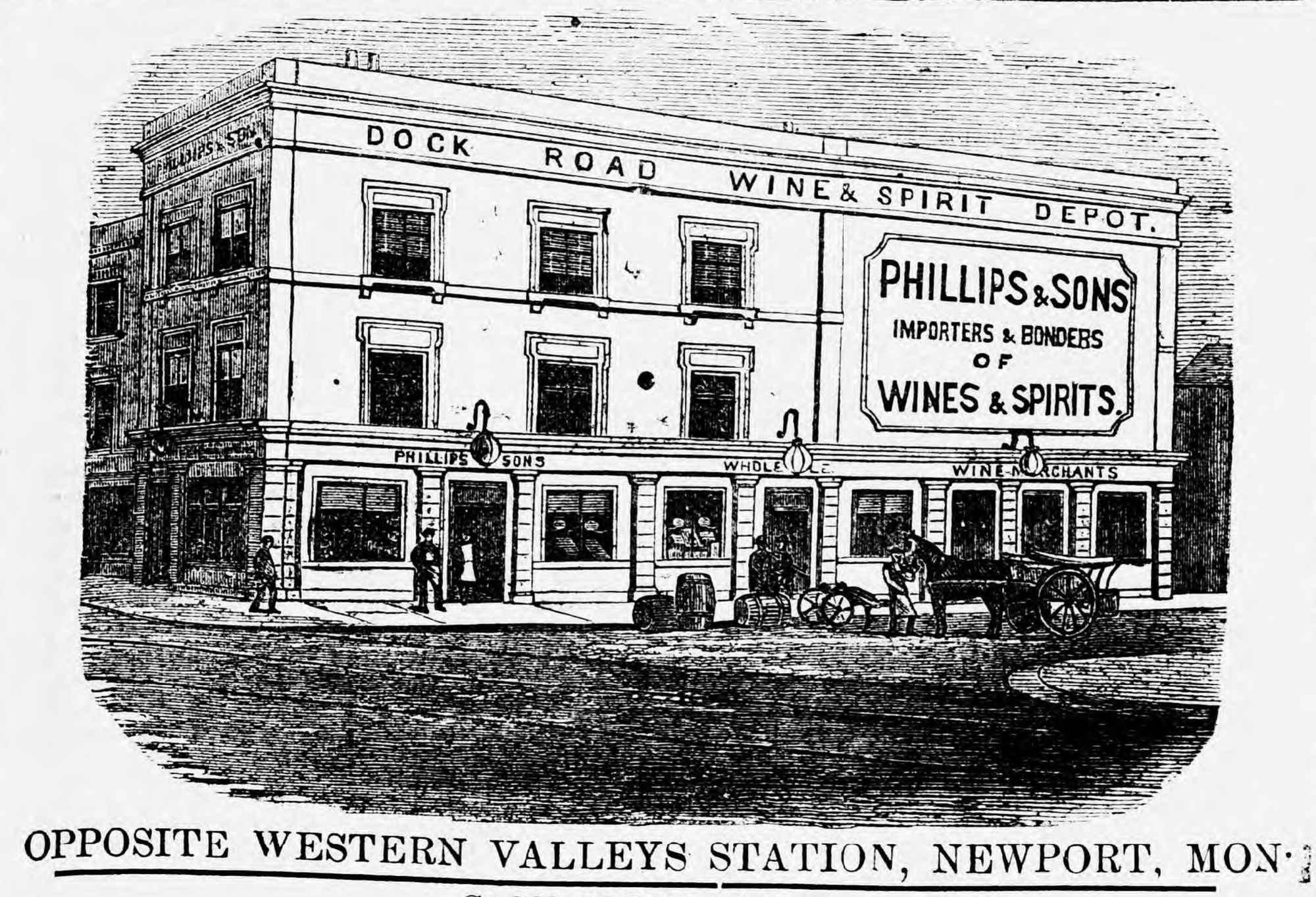

A Concert Room Burnt Down at Newport
A building, situate in the rear of the Parrot Hotel, Commercial-street, Newport, and known as the Parrot Music Hall, was destroyed by fire, on Tuesday morning, the loss sustained by the proprietor being considerable.
On Monday evening, after the performance, the saloon was locked up as usual, there being no fire or gas burning, and everything apparently being safe. At six o'clock in the morning a woman who has a coffee-stand near, discovered the saloon to be on fire, and alarmed the inmates of the hotel.
Mr. Evans, the proprietor, on finding the cause of alarm, sent to the Police-station and, with all available alacrity, Sergts. Wilcox and Pratten, with 10 police-constables, were on the spot with the reel and hose, which was affixed to the hydrant, in Commercial-street and the fire-plug in Charles-street. It soon became evident that the saloon could not be saved, and some apprehension was felt with regard to the adjoining property. Fortunately the efforts put forth to prevent the spread of the fire were successful, but in two hours the saloon was destroyed.
The building was somewhat extensive, having accommodation for several hundreds of people. It was generally of slight construction, a large portion of it being composed of wood, erected on brick pillars, the space underneath being used as a cart-shed. The whole of the fittings and contents of the hall were destroyed, and the debris presents a suggestive picture, beer-jugs, waiters' trays, twisted gas-piping, &c., being mixed up incongruously, while under the place where the bar was situate may be seen several barrels of ale which have escaped the flames.
Among the articles lost is a piano, by Collard & Collard, and of considerable value, a harmonium, and other musical instruments. The property was not insured, and Mr. Evans will be a heavy loser. Nothing is known as to the origin of the fire.
— Monmouthshire Merlin, 14th January, 1876

'Making Arms at the Cordes Factory'
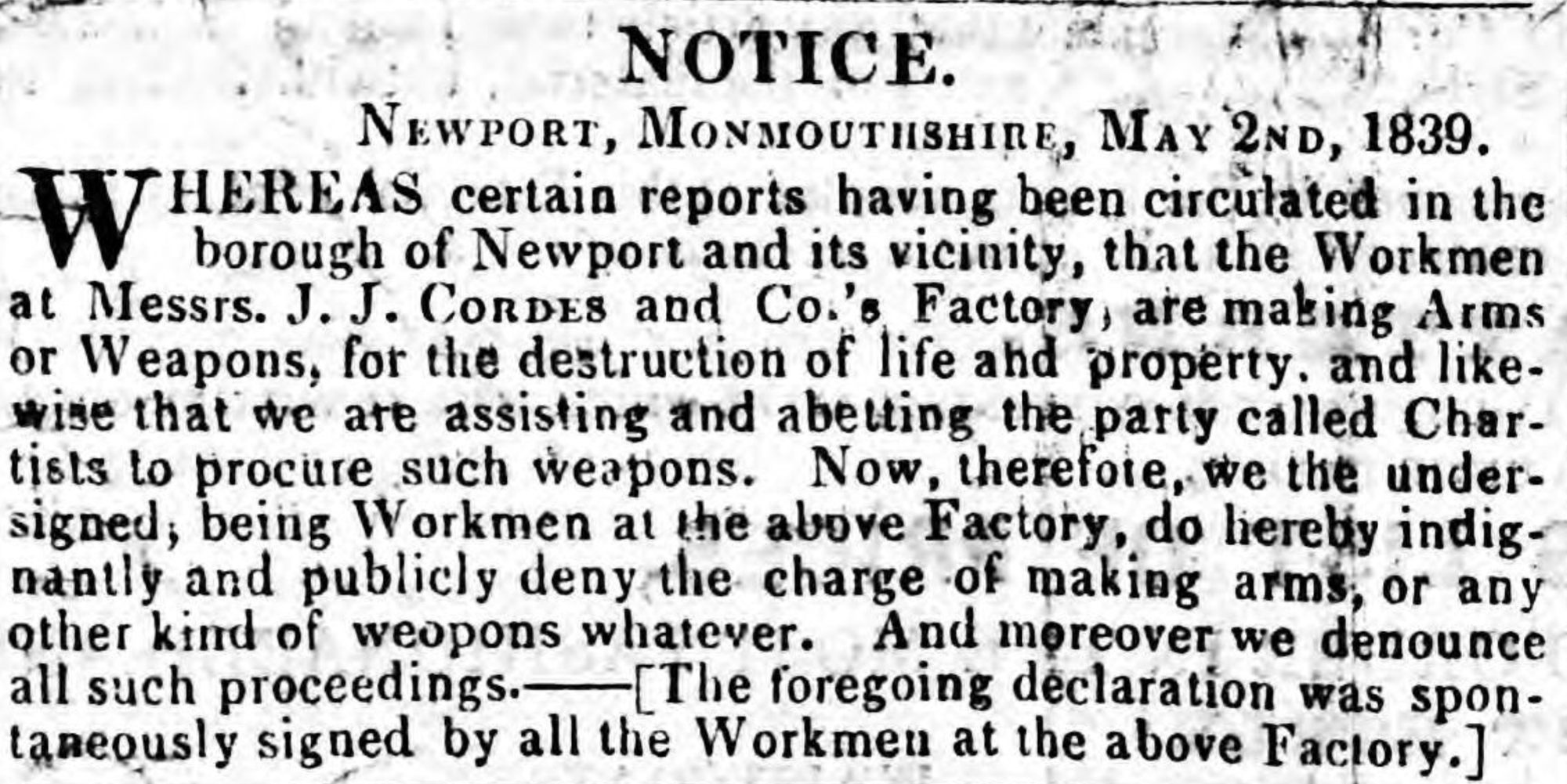


The Stone Throwing Nuisance
Five boys. named Philip Torrington, Thomas Reed, James Melon, Burgess, and Westoby, were charged with stone throwing, and otherwise annoying the inhabitants of Clarence-street, by throwing stones and letting off squibs through the key holes, and, on this occasion. P.C. Evans caught one of the boys with alighted candle in his hand. Ordered to pay 2s. each.
— Monmouthshire Merlin, 10th October, 1873
A Weekly Visitor
Julia Casey was charged with a violent assault upon two men named Michael Murphy and Cornelius Neehan. It appeared that on Friday evening the two complainants were going down the street when one of them was challenged by the husband of the defendant to fight, but he declined, and shortly afterwards the defendant, whom he had never seen before, and to whom he had said nothing, struck him on the head with a stone jar, which was broken with the blow.
She afterwards attacked the other man, who received a severe wound in the right eye. A police officer appeared on the scene and found the men bleeding very much. The defendant ran away, was pursued, captured, and taken to the station. It was only the Wednesday previous that magistrates overlooked a charge of drunkenness, on her promising amendment, and she was now sentenced to two months' hard labour for each assault.
— Monmouthshire Merlin, 10th October, 1873
A Gambling Fracas
George Carver, and Elizabeth, his wife, were summoned for assaulting Emanuel Moses. Complainant, a runner, stated that, about 11 o'clock p.m. on the 29th ult., he met George Carver, who is a barber, and went home with him to have a game of cards. Carver began to cheat, and then complainant took up his money, whereupon both defendants assaulted him. The defence was that complainant struck the first blow. The summons against Mrs. Carver was dismissed, and the husband fined 20s. and costs.
— Monmouthshire Merlin, 10th October, 1873
'A Frail and Fallen Creature'
Mary Ann Jones, a very frail and fallen creature, was charged with obstructing Sergeant Huxtable, and using violent and disgusting language towards him on Thursday midnight last. Sergeant Huxtable and P.C. Pennimore proved the charge, and his Worship, after some sever, and it is hoped, useful, admonitory remarks, ordered her to be fined in the mitigated penalty of 5s, or be imprisoned 14 days in the Usk House of Correction, with hard labour.
— Monmouthshire Merlin, 20th May, 1843
'A Disagreeable-Looking Sinner of the Feminine Gender'
Milian Harborough, a disagreeable-looking sinner of the feminine gender, was charged with being drunk and disorderly in the street on Sunday morning last. P.C. Hewish stated that he found the prisoner taking a nap in the door-way of Mrs Harrhy's house, about three in the morning, and as she reported herself drunk and homeless, he lodged her in the station-house cell.
As the prisoner pretended that she could not speak English, a Welsh colloquy ensued her and Mr Edwards, whose abilities in the Cambrian vernacular, severely tested those of the prisoner.
His Worship at length settled the case by observing that the prisoner was a real vagrant and disorderly person, who had twice received shelter in the Refuge for the Destitute, from pretending to be in fits, and had been in different prisons a number of occasions. His Worship now ordered her to be fined £2, or be imprisoned two months in the House of Correction at Usk, with hard labour; adding, that if she was ever brought before the Bench on similar charges, she should be convicted in the full penalty of £5, or receive six months' imprisonment.
— Monmouthshire Merlin, 20th May, 1843
Charge of Assault with a Life Preserver
Edward Meek was charged with assaulting George Baylis, a labourer, of Risca, on the 15th inst. Prosecutor stated that between five and six o'clock in the afternoon he was out in the street. Had had a few words just before Christmas, and on meeting defendant in the street had a few words with him. The defendant struck him a violent blow on the head with something that he threw out of his hand. He indicted a wound, which bled freely. That morning defendant had again threatened him.

Mr. Wade, solicitor, defended the prisoner. Thomas Williams said he saw the defendant draw a life-preserver from his pocket, and strike complainant on the head with it. Mr. Wade remarked that the life-preserver was an implement which watchmen and gamekeepers usually carried. Robert Perry, another workman, who was present, gave additional corroborative evidence. The Bench resolved to remand the defendant for a week, in order to see how the complainant got on, and declined to accept sureties, although the foreman of the works at which defendant was engaged was prepared to offer substantial bail.
— Monmouthshire Merlin, 23rd June, 1876
An Irish Row
Margaret Long, Patrick Long, Johanna Murphy, and Anne Mahoney were charged with being disorderly in George's-buildings. This was an Irish row, and the volubility of the parties in Court was almost deafening. Mahoney seemed to have been the worst, she being responsible, as Mrs. Long said, for the "institution" of the row, and she was fined 5s.; the others were fined 6d.
— Monmouthshire Merlin, 23rd June, 1876
Neglecting to Join
Thomas Bell pleaded Guilty to neglecting to join the British ship Myvanwa belonging to Messrs Robbin Rees and Co, and bound for East London, Cape of Good Hope. Six weeks' hard labour.
— Monmouthshire Merlin, 23rd June, 1876



'A Stranger's Observations'
To the Editor of the Monmouthshire Merlin.
Sir,—Although a stranger in Newport, I trust you will, through the medium of your widely spread journal, allow me to make a few observations respecting some of the disadvantages this important town unfortunately labours under; my motive being its improvement. I
t has been remarked that persons at 1 distance see more of a battle than those who are actually engaged in it: I, as a stranger here, see things that may escape the attention of a resident. The first thing that struck my attention as being a great nuisance, that common vigilance on the part of those whose duty it is to attend to those matters might easily prevent, was the accumulation of mud at the bottom of Cross-street, and the crossing from the William the Fourth to George-street. Still, this was but a trifle when compared to the mud-bank in Potter-street, leading to the dock. The row of houses here appear to be half buried.
Upon inquiry I was informed that this is occasioned by the laying down of pipes, to conduct water from the canal to the barracks. But why the health and comfort of some 70 or 80 individuals should be destroyed, and the deterioration of the value of property suffered by the authorities of your town, I was certainly at a loss to comprehend even the very sewers and drains are all stopped. This loudly calls for the interference of local authority.
Passing onwards the splendid dock came full in view this will doubtless greatly lend to increase the welfare of your town. I was, however, sorry t0 learn that some of the most wealthy gentlemen in the neighbourhood look with apathy upon the noble example thus set before them, and put not their shoulder to this laudable work. The banks of the canal loudly call for the assistance of the scavenger. The broken flags, and consequent pools of water in the principal streets, is certainly anything but creditable to present "Proprietors of the soil." St. Woollos Church-yard, too, is most outrageous; the graves being sown one upon another as thick as grass. 1
I trust you will pardon these observations, and that they will be taken in the manner in which they are meant, namely, the welfare of the town.
TRAVELLER.
— Monmouthshire Merlin, 2nd October, 1841

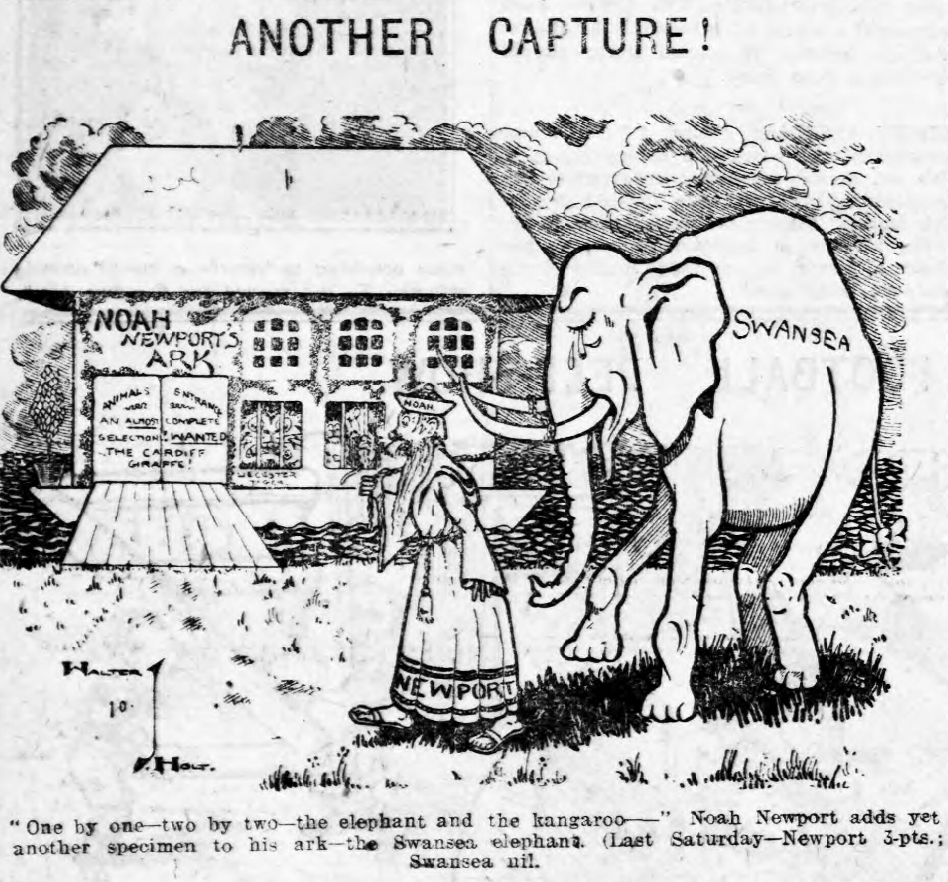



'The Glorious Fifth'
Guy Fawkes night has long been celebrated in Newport as it has been around the country and back in the late nineteenth century celebrations have been just as noisy and troublesome as they are sometimes today.
'Rowdy Scenes at Newport'
The "5th" was celebrated in Newport with the customary rough and rowdy scenes. Throughout the day the streets were given up to the mercy of fireworks exploding urchins, and between eight and ten at night the spirit of license was fully abroad, and a fusillade of fireworks was kept up in the principal streets. A great crowd blocked the street at the Westgate, and those present amused themselves with discharging squibs and crackers at each other, while numbers of boyd ran along the streets dragging blazing pieces of wood saturated with the tar behind them.
One rather unusual incident occurred at Maindee. On Monday a boy was fined at the Police Court for throwing a squib into the grocer's shop of Mr Turner. At night, a gang of about a hundred boys besieged the shop which they stormed with a perfect shower of fireworks and blazing staves. A piece of tar-barrel was sent against the door, and had not a body of men in the neighbourhood come to the shopkeeper's assistance the place might possibly have been set on fire. The police were conspicuously absent while these scenes. were being enacted, although one was seen leisurely strolling up after the noisy crew had been driven off and dispersed.
— South Wales Argus, 7th November, 1893 (Subscription Required)
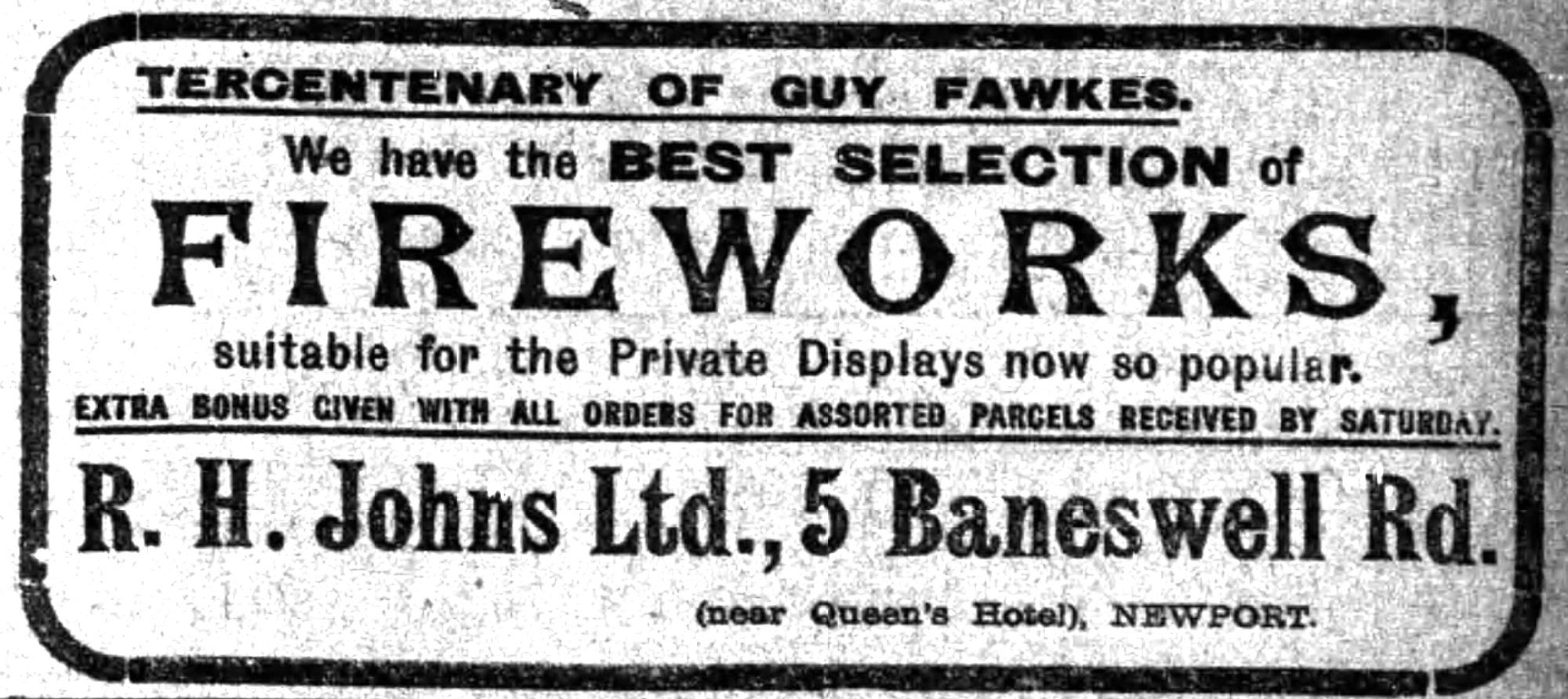
'Guy Fawkes' Celebration'
"Guy Fawkes' Day" falls to-morrow, and as Sunday is dies non in more sense than one, the "celebration" will, in most cases, be postponed until Monday. Now, remembering what took place in Newport a year ago, we hope the Watch Committee of the Corporation will instruct the police to do all they can to prevent a repetition thereof. On that occasion, the town was turned into a perfect Pandemonium.
Fireworks were thrown about the principal street of the town by a gang of youths with absolute indifference to whether people were terrified or injured. As our reporter the following Monday wrote: "The safety of persons was utterly set at nought; indeed, it seemed to be the aim of each of those engaged in the pyrotechnic celebration to throw his blazing missiles wherever they were likely to do most harm."
In one case, a young woman's dress was ignited; others had their hair singed. 'Busses were made an object of attack, squibs were pushed in people's faces, tradesmen had their good damaged, and many of them are compelled to close long before the usual hour.
Briefly, this is what took place last year. This, however, was nothing to what took place, about twelve years ago, when a policeman was killed. But the state of affairs last year was bad enough in all conscience, and unquestionably reflected the greatest discredit upon the authorities.
Probably in no other town in the country — certainly in no well ordered municipality — would such a disgraceful state of affairs have been allowed.
Tradesmen, who are heavily, rated, no doubt sustained considerable losses on the night in the week when their business is the heaviest. The principal commercial thoroughfare in the town was under the domination of mob-law — and for what purpose? Simply that a crowed of hobbledehoys might amuse themselves by throwing crackers and squibs about in celebration of an individual of whom they, probably, knew nor more than his name.
There is absolutely no raison d'être for the celebration. The custom ought by now to have fallen in desuetude. The attempt of Guy Fawkes — or Guido Fawkes, as he signed himself, if we mistake not — to blow up the Parliament houses ought not to possess any more historical significance than, say, the murder of Thomas Becket, or the execution of Charles I. Yet the first event occupies a larger share of the public imagination than either of the other two. But a truce to reflections, historical or otherwise.
What we want to insist upon with all the force at our command is the absolute necessity for the authorities at Newport taking vigorous action on Monday. We do not again desire to see the police looking on supinely whilst mo-law is rampant in the town. We have no wish to curtail reasonable pleasure on the part of the youth of the town.
Let them celebrate the Fifth by all means, but in a proper place. There are the Marshes for indulging in bonfires, fireworks, and such like inanities
and what we look to the Watch Committee to do is to instruct the police to see that these celebrations are confined to some spot where they will neither interfere with business nor terrify women and children.
— South Wales Argus, 4th November, 1893 (Subscription Required)
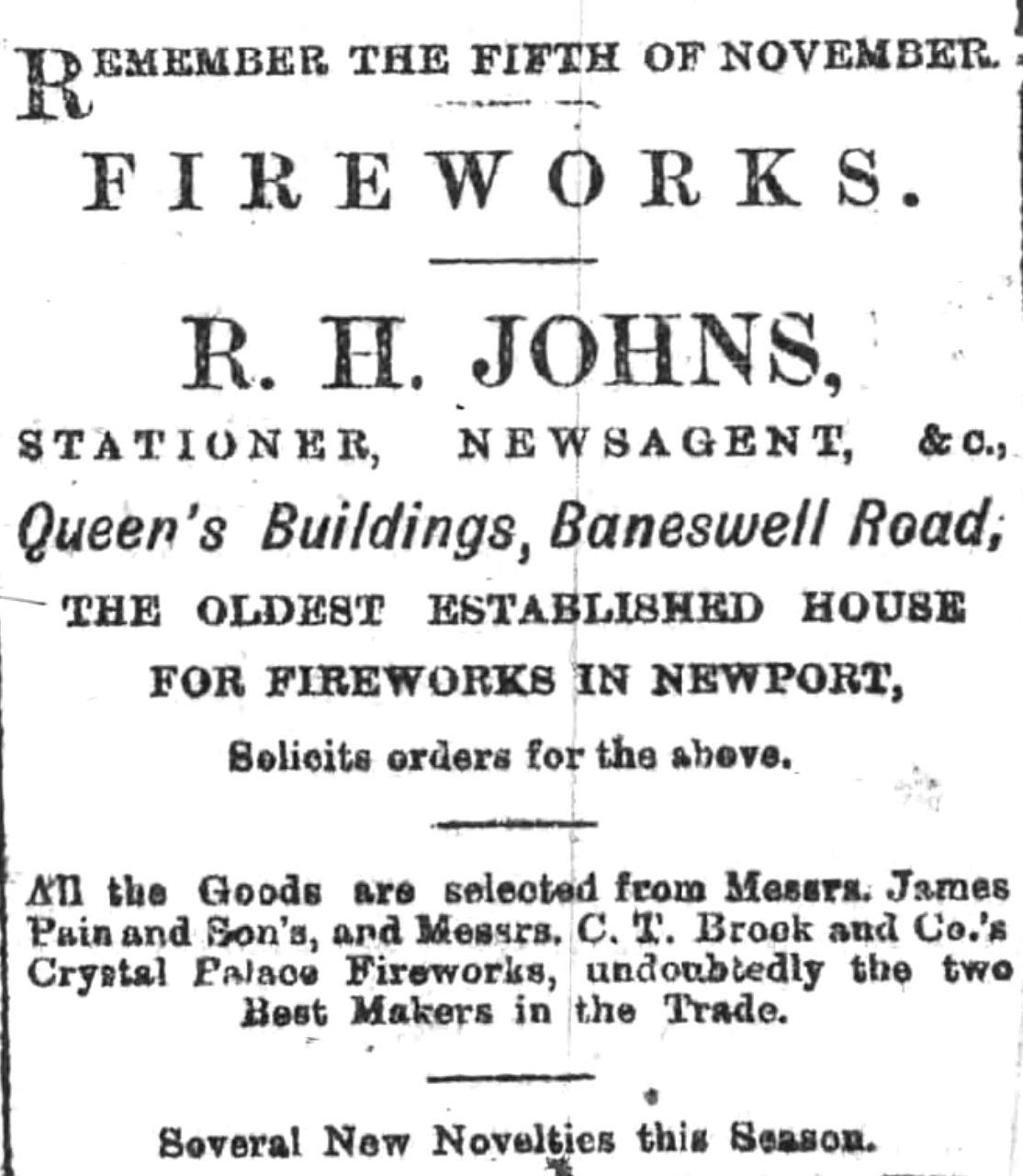
'Guy Fawkes' Celebration'
DANGEROUS PRACTICES IN NEWPORT STREETS
The celebration of the Gunpowder Plot in Newport on Friday was made the occasion for letting off fireworks in the public streets; but compared with former years there was considerably less rowdyism and horse-play. The chief interest of those who took delight in firing squibs, crackers, detonators, and coloured lights, &c., was centred in front of the Westgate Hotel and at the foot of Stow Hill, where between the hours of seven and ten o'clock a large crowds numbering considerably more than a thousand assembled.
During the evening several hundred inexpensive fireworks must have been discharged. Not only were squibs and rackers thrown about indiscriminately, but detonators also, to the danger of those near whom they exploded. The crowd were not guilty of lawless acts, and most of the amusement was conducted good-humouredly.
It is satisfactory to know that no damage was done to the property or the person. The whole of the police were patrolling the streets but did not attempt to interfere with the "fun" of the younger generation.
It is safe to say that in very few if any towns in the country, but Newport, would such a reckless throwing of burning material in the public streets, be permitted.
— South Wales Argus, 6th November, 1897 (Subscription Required)
And when bonfire night fell on a Saturday, one person was concerned about whether wives will be able to go shopping on a Saturday night. But judging by the nom-de-plume used, the person seemed to have a vested interest in moving it to another night.
DEAR SIR, — Seeing that Guy Fawkes' night is on Saturday, it will be very awkward for the tradesmen, and not only for them but for the working men's wives who go out to market and shop on a Saturday night. Cannot we have the celebration on Friday night, surely the tradesmen would close that evening at six o'clock. No doubt if it does take place on Saturday, the tradesmen will lose a good lot of custom, as ladies won't come out to shop. Hoping it will take place on Friday.
— Yours truly, TAR BARREL.
Newport, October 31st, 1892
— South Wales Argus, 1st November, 1892 (Subscription Required)



South Wales Argus, 4th November, 1901 (Subscription Required)

Freak of a Madman
On Sunday about midnight an elderly man was found on Newport Bridge in a state of nudity, and running about in an excited manner. He went to the iron gates at the Bristol Packet Wharf, and shook them violently. Sergeant Brooks secured him, and his clothes were found on the bridge. The Sergeant with assistance managed to partially dress the man and he was taken to the station, his behaviour being of a most violent description.
He was under the influence of drink, but it was evident that the main cause of his extraordinary conduct was that he was dangerously mad. It was a long while before he could be prevailed upon to put on his clothes, and he refused to give any account of himself. He has since been removed to the Workhouse, and says his name is Charles Hooper, and that he is a tailor. He is recovering his reason.
— Monmouthshire Merlin, 9th June, 1876

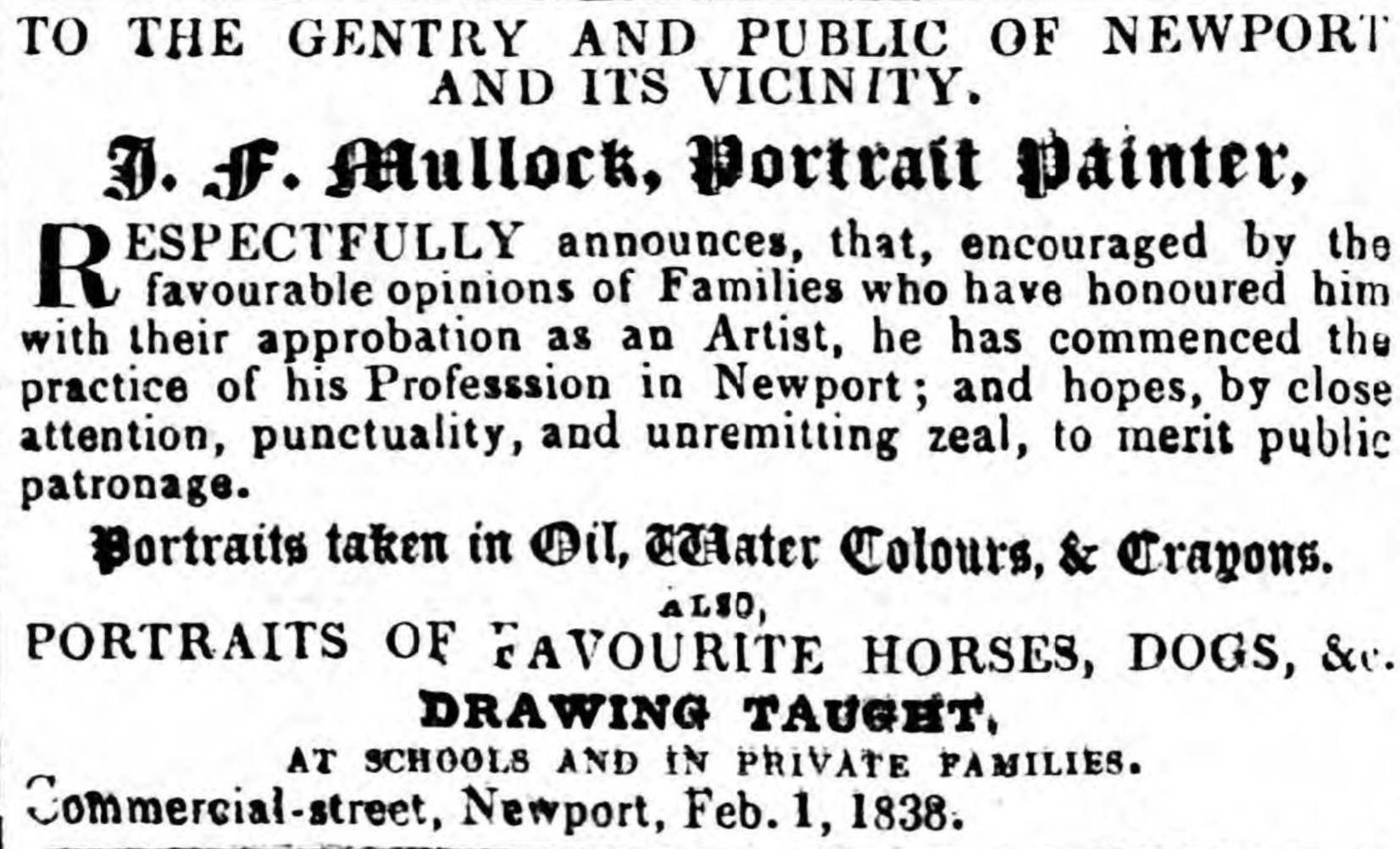

Complaint from the Inhabitants of Thomas Street
A memorial was read from residents in Thomas-street, calling attention to what was termed a great nuisance and grievance existing in that thoroughfare by the standing of cabs there, by which the thoroughfare was blocked, the shops were hidden from view, and the safety of children was endangered.
Alderman Lyne asked why the cabs stood in Thomas-street The Surveyor said the question of stand accommodation for cabs bad been referred to the Works Committee, who had not yet had time to consider the matter. The propriety of its being. officially recognised, or a stand being made somewhere else, had to be considered.
Mr. Davis said that put cabs where they would there would be similar complaints.
The Mayor: It seems to me to be a hardship in a narrow street like that.
Mr. Graham said it was a very great hardship. He referred to the practice of washing cabs there, and called attention to the difficulty which was occasioned in getting to the Thomas-street sub-way. He suggested that the memorial should be referred to the Public Works Committee.
Alderman Townsend said the inhabitants of Thomas-street complained of the closing of the crossing, as it diverted traffic.
The Mayor said it was bad enough to stop up the crossing, without turning the street into a cab-stand.
Mr. West endorsed Mr. Graham's observations, and said that a nuisance was occasioned, not only by the washing of cabs, but by the cabmen simply sky-larking from morning to night.
The Mayor observed that the pavement was the narrowest in Newport.
The matter was referred to the Public Warks committee.
— Monmouthshire Merlin, 2nd June, 1876

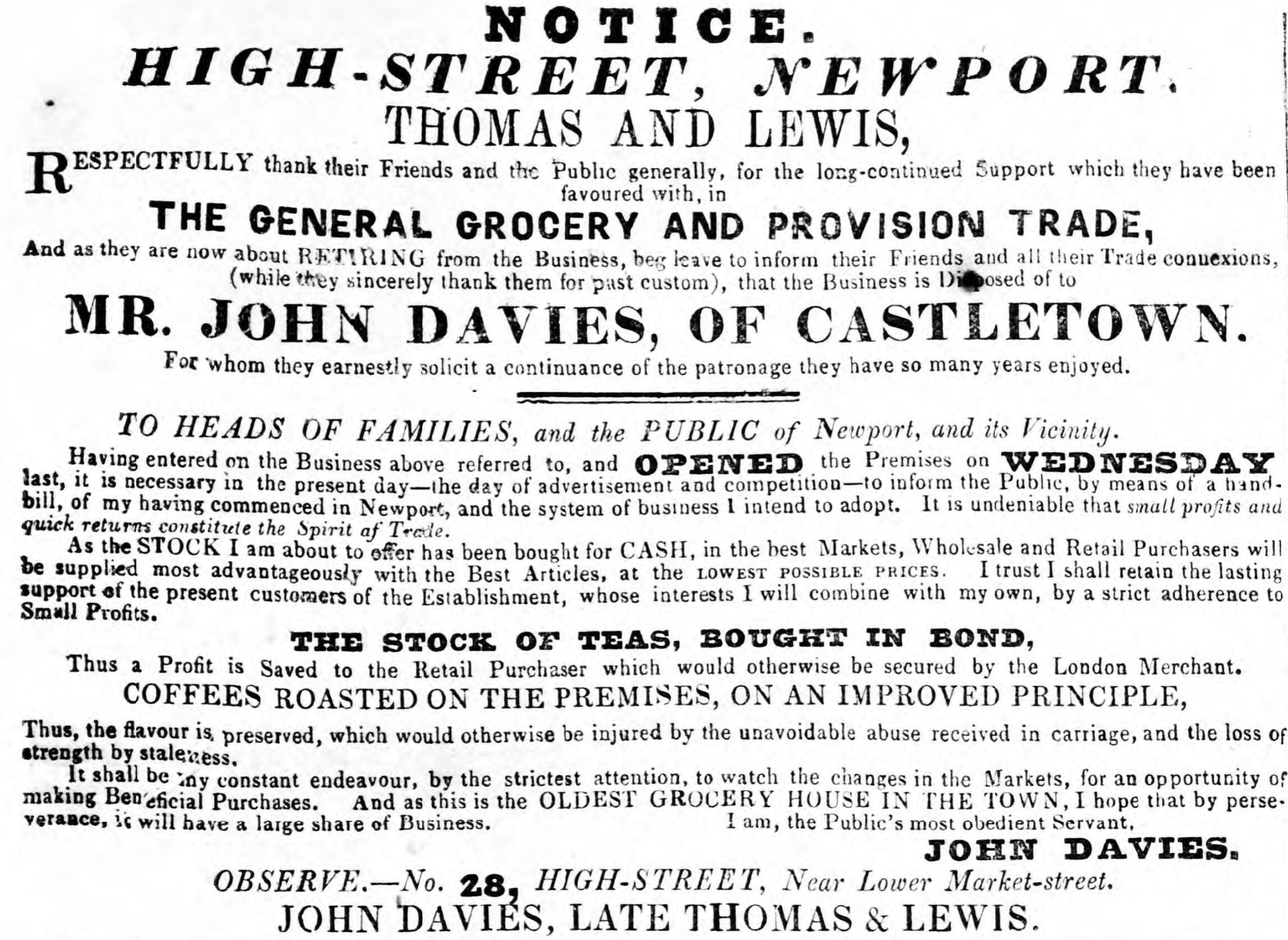

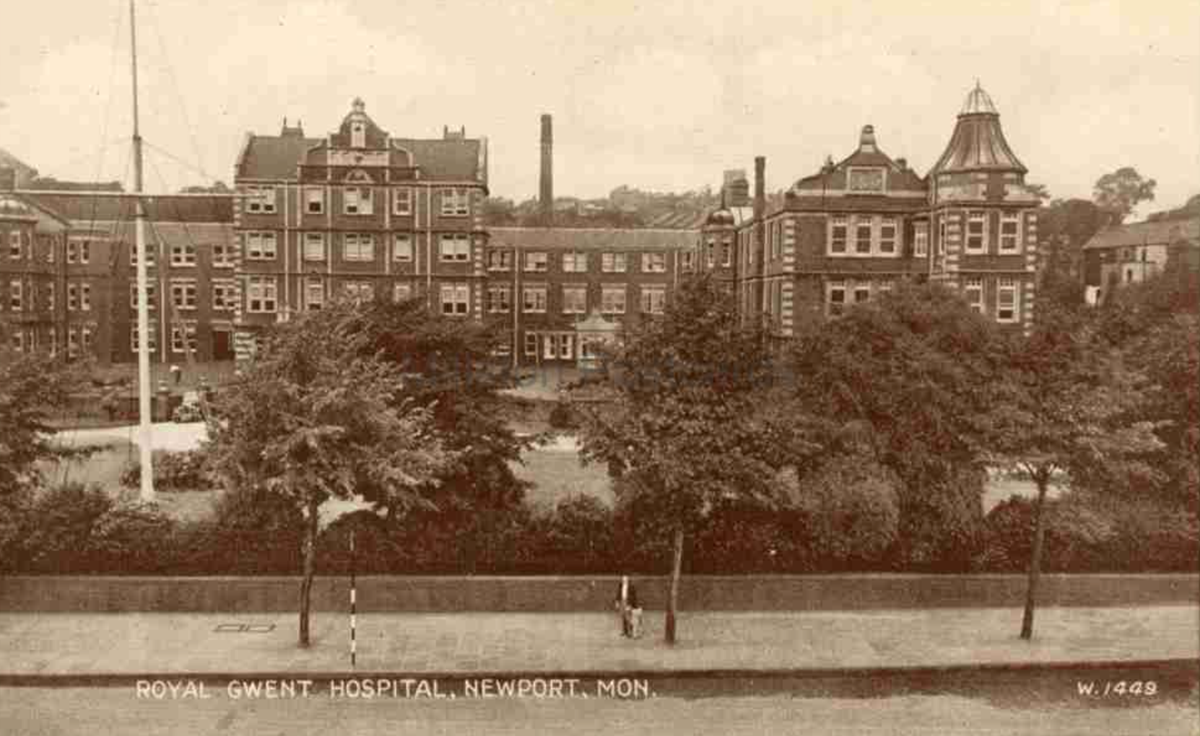
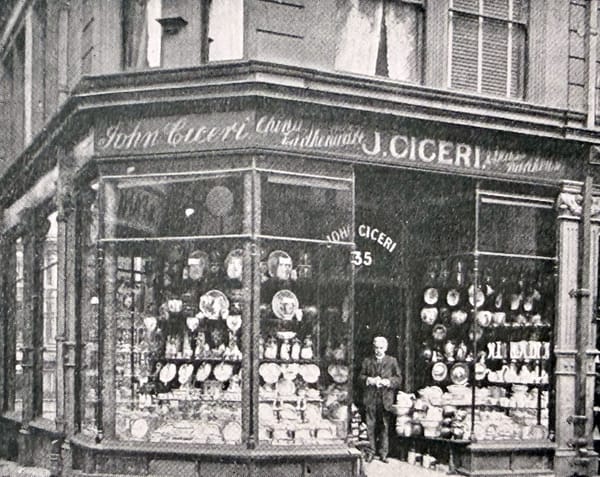
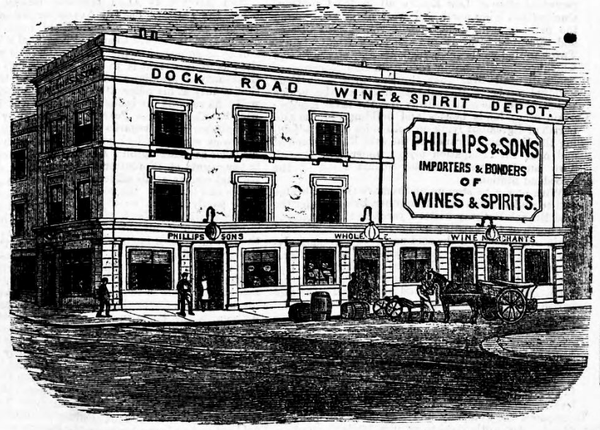
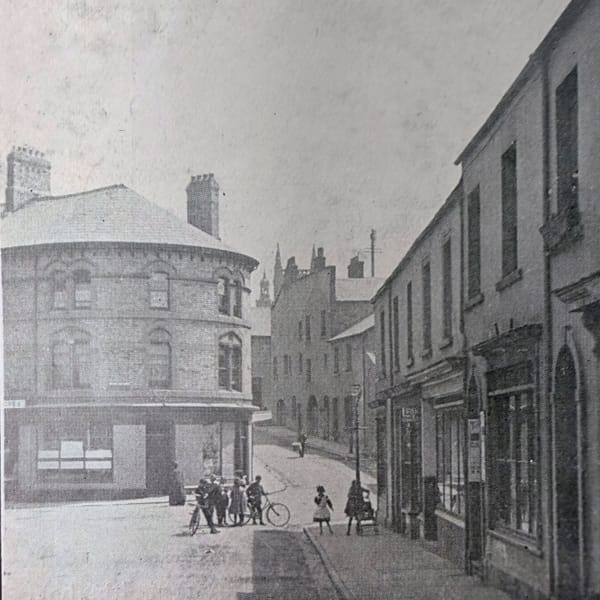
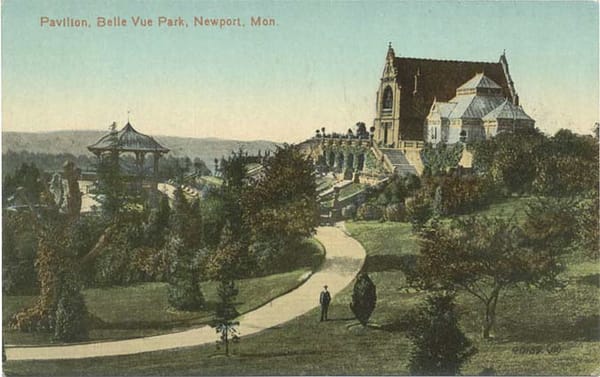
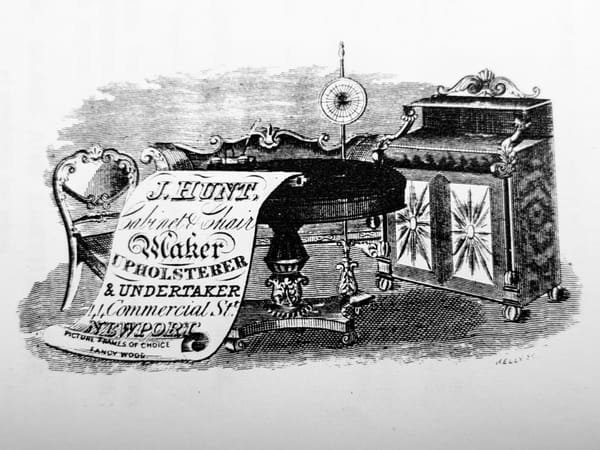
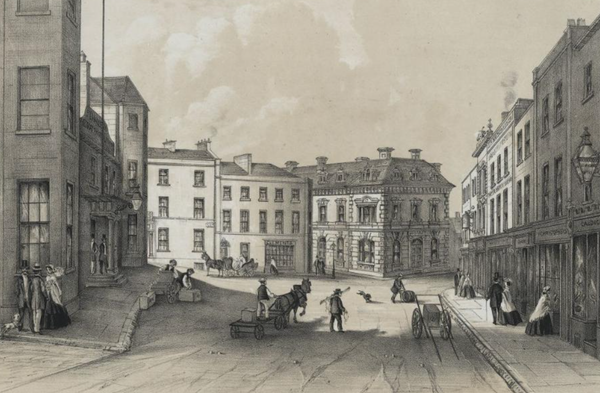
Member discussion